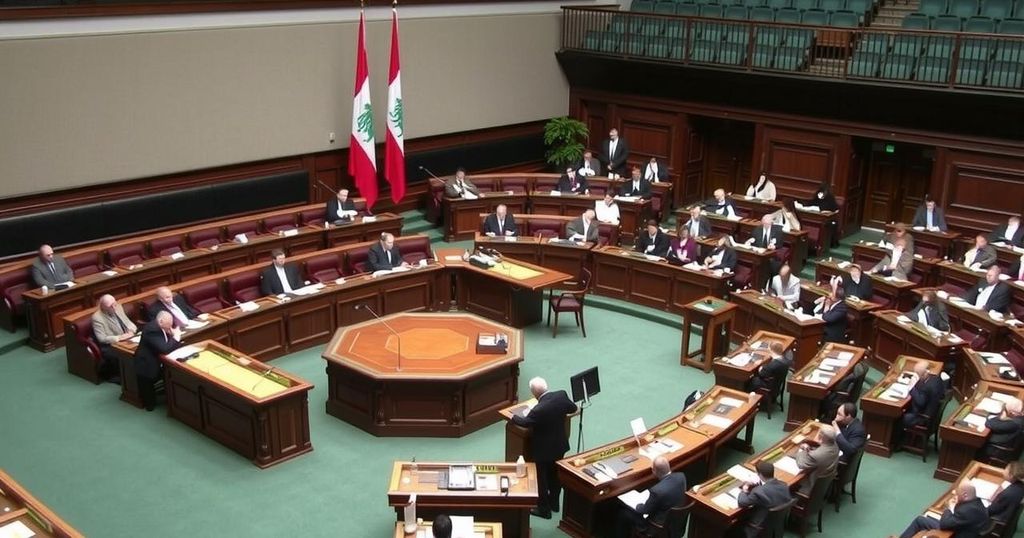Lebanon Parliament’s Effort to Elect New President After Prolonged Vacancy

Lebanon’s parliament is poised to elect a new president after a two-year vacuum since former President Michel Aoun’s departure. Joseph Aoun, the army commander, is the leading candidate with significant backing from international powers. This election attempt arises amidst political paralysis and urgent needs for governance as Lebanon confronts severe economic crises.
Lebanon’s parliament convened with renewed hope of electing a president, following a two-year vacancy since former President Michel Aoun’s term ended in October 2022. Joseph Aoun, the Lebanese army commander, has emerged as the frontrunner for the presidency, largely supported by the United States and Saudi Arabia. Amidst previous failed attempts to fill the presidency, the latest session could mark a significant turning point in Lebanon’s tumultuous political landscape.
Joseph Aoun’s candidacy has gained momentum following Suleiman Frangieh’s withdrawal, who had initially been backed by Hezbollah. This unexpected turn may enhance Aoun’s chances of election, given his military background and existing international support. However, Joseph Aoun faces constitutional challenges, as current law forbids serving army commanders from becoming president, necessitating a two-thirds majority for his election even in subsequent votes, increasing the complexities of the process.
Other candidates include Jihad Azour, a former finance minister with connections to international financial institutions, and Elias al-Baysari, head of Lebanon’s General Security agency. The urgency for electing a president is underscored by the need to establish a permanent prime minister and government, as Lebanon navigates through numerous crises, including a looming economic disaster and the aftermath of a recent conflict with Hezbollah.
The new administration will be tasked with implementing necessary reforms to address Lebanon’s extensive challenges. The country has struggled through a severe economic collapse over the past six years, which has led to widespread financial hardship among its citizens. With ongoing discussions regarding an IMF bailout package stalled due to insufficient reforms, the elected president’s role will be critical in steering Lebanon towards recovery and stability.
Lebanon’s political structure is characterized by a sectarian power-sharing system that often leads to paralysis. The systematic deadlocks have prevented the timely selection of a president, as evident from prior instances where vacancies have lingered for extended periods. Former President Michel Aoun’s exit in October 2022 has left a notable power vacuum, underscoring the urgent need for presidential leadership amidst crises including economic turmoil and geopolitical conflicts involving Hezbollah. Joseph Aoun’s candidacy reflects the intertwining of local and international political interests, particularly from significant external powers such as the United States and Saudi Arabia, which may influence Lebanon’s future governance.
The Lebanese parliament’s attempt to elect a new president signifies a critical moment in the nation’s effort to emerge from a prolonged political vacuum. As Joseph Aoun stands out as the leading candidate, his election could facilitate the establishment of a functional government capable of addressing the pressing economic and institutional challenges Lebanon faces. The complex interplay of internal and external political dynamics will play a crucial role in determining the future stability and recovery of this economically strained nation.
Original Source: www.hindustantimes.com








